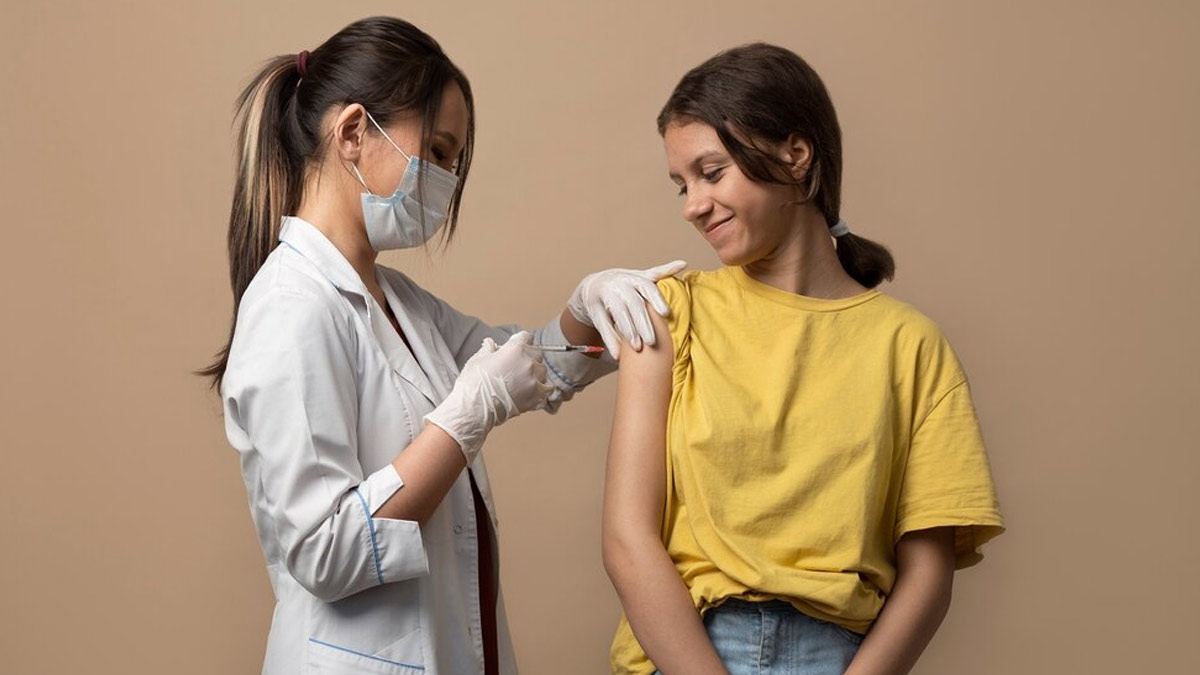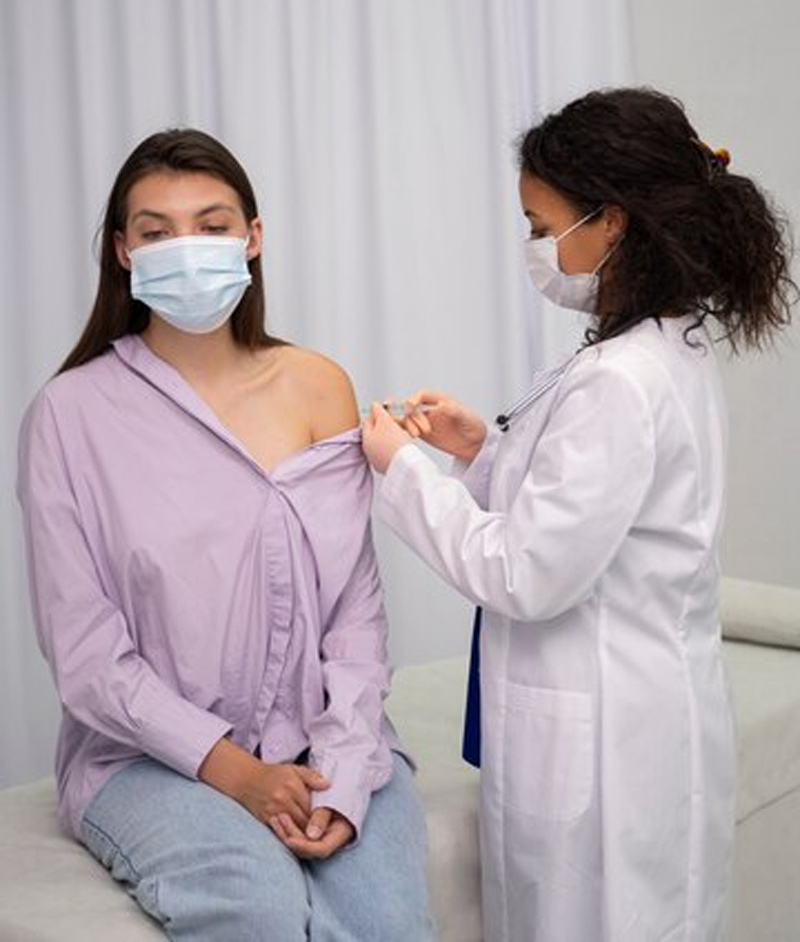
Cervical cancer, the second most prevalent cancer among women in India, stems from the human papillomavirus (HPV). Unlike other cancers, its unique viral origin emphasises the need for vaccination and timely screening. The World Health Organisation (WHO) aims to eliminate cervical cancer globally by 2030, prioritising the 90-70-90 formula—vaccinate 90% of girls by age 15, screen 70% of women early, and treat 90% of cancer cases.
Table of Content:-
According to the Centre for Disease Control and Prevention, HPV vaccine is suggested for children aged 11 to 12 years. HPV vaccines can be administered starting at age nine. HPV vaccination is required for all preteens to prevent them from HPV infections, which can lead to cancer later in life.
Transmission Of HPV
HPV is a collection of over 200 related viruses, more than 40 of which are transmitted by direct sexual contact. Two HPV kinds cause genital warts, while over a dozen HPV types can cause specific types of cancer, including cervical, anal, oropharyngeal, penile, vulvar, and vaginal.

“Transmission differs, as it is not genetic or environmental but transmitted solely through sexual intercourse. Efforts are underway to combat HPV, recognising the potential for global eradication,” said Dr Aswathy S, Professor, Department of Community Medicine, Amrita Hospital, Kochi.
“HPV types 16 and 18 cause 70% of cases, with 90% of infections resolving within two years. However, the remaining 10% can lead to cancerous changes, providing a crucial window for timely intervention,” said Dr Aswanthy.
“ In early stages, cervical cancer exhibits no specific symptoms, making prevention through vaccination and screening crucial,” she added.
Also read: 10 Reasons To Be Vaccinated Against Human Papillomavirus (HPV)
Risk Factors Of HPV Transmission
According to Dr Aswanthy, risk factors include multiple pregnancies, poor hygiene, compromised immunity, multiple sex partners, tobacco use, and early sexual activity, especially for those with active sex lives, particularly young people.
Effectiveness Of HPV Vaccination
“The HPV vaccine's effectiveness lies in administration before the virus enters the body. The WHO recommends vaccination between ages 9 and 14, targeting pre-adolescents and adolescents for maximum effectiveness. Some countries extend the vaccine to boys, proven effective against various cancers,” Dr Aswanthy said, adding, accurate screening is vital; women should undergo cervical cancer screening at least once after age 25, with some countries mandating screenings every three years. Self-sampling at home is a potential advancement in screening methods.
Also read: 1 in 3 Men Carries HPV: Know The Hidden Truth Of HPV
Early detection and treatment, even after HPV infection, have proven effective, turning cervical cancer into a reversible disease. Emphasising the need for women worldwide to embrace vaccination and regular screening is crucial, offering a proactive defence. The battle against cervical cancer relies on widespread HPV vaccination and regular screening, underscoring the urgency to save lives through early intervention and awareness campaigns.
Also watch this video
How we keep this article up to date:
We work with experts and keep a close eye on the latest in health and wellness. Whenever there is a new research or helpful information, we update our articles with accurate and useful advice.
Current Version
